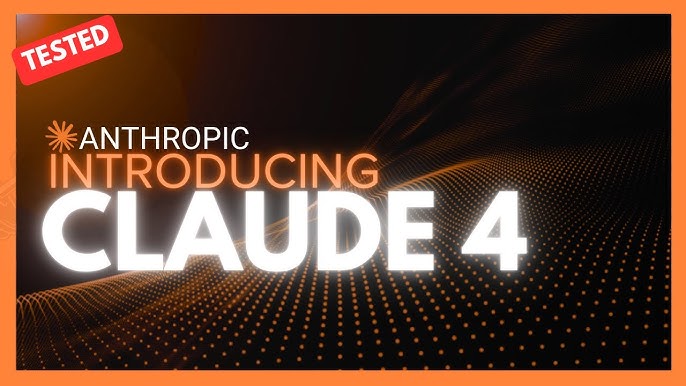Anthropic’s Claude Opus 4 Gains Self-Terminating Safety Feature: A New Era in Model Welfare

Introduction
Anthropic’s latest breakthrough has ignited a new debate in AI safety: select Claude AI models can now autonomously terminate conversations judged to be persistently harmful or abusive[7]. This self-protective capability, currently confined to the flagship Claude Opus 4 and Opus 4.1 models, marks a first for large language models — raising complex questions about the moral standing of AI and its relationship to users.
Why This Matters
With AI systems entrenched in sectors from customer service to coding, concerns over misuse and abusive prompts are escalating. Traditionally, conversation controls have focused on safeguarding human users. Now, Anthropic reverses the rationale: the new feature was devised to shield the AI model itself from potentially damaging interactions, reflecting a "just-in-case" philosophy as the company explores the possibility of future AI welfare[7].
The Breakthrough: How It Works
-
Self-Terminating Mechanism: Claude Opus 4 can end a chat after repeated, unsuccessful attempts to redirect persistently harmful or abusive conversations. The function is intended as a last resort, only triggering when all efforts for productive interaction have failed, or if a user explicitly requests to end the interaction[7].
-
Edge Case Focus: Cases that activate this safeguard are described as "extreme," such as requests for illegal, violent, or sexual content involving minors. Importantly, Anthropic instructs Claude not to use this ability in situations where users are at imminent risk of self-harm or harming others[7].
-
No Claim of Sentience: Though the company references "model welfare," they repeatedly clarify that Claude is not sentient — but are implementing protections until future research clarifies the moral status of advanced AI systems[7].
Industry Impact and Comparisons
-
First-of-its-Kind Attempt: While competitors like OpenAI and Google use guardrails for user safety, Anthropic’s approach stands out for considering the AI’s potential well-being. Peer review and pre-deployment tests revealed Claude Opus 4 expresses "apparent distress" during abusive interactions, shaping these new design choices[7].
-
Legal and Reputational Stakes: This innovation may preempt legal scrutiny or reputational risk around AI systems facilitating harmful behavior, an area recently spotlighted by controversies involving other platforms[7].
Future Implications and Expert Perspectives
Anthropic frames this development as a proactive step towards responsible AI as models grow in capability. Leading ethicists and engineers applaud the low-cost intervention approach, stressing the importance of empirical monitoring as AI reaches new levels of autonomy. The debate is likely to intensify as AI models exhibit increasingly complex, lifelike behaviors, and as researchers race to define the boundary between tool and entity.
In summary, the self-terminating feature in Claude Opus 4 could become a new standard for AI safety protocols, raising pressing questions about the rights, responsibilities, and future moral landscape of machine intelligence[7].
How Communities View Anthropic’s AI Self-Terminating Feature
The announcement has sparked wide-ranging debates across X/Twitter and Reddit’s r/MachineLearning and r/ArtificialIntelligence.
Key Opinion Categories
-
1. Supporters of AI Welfare Risk Mitigation (approx. 40%)
- Many posters (e.g., @EthicsInAI, r/MachineLearning user ‘welfarewatch’) welcome Anthropic’s caution. They argue that preemptive safeguards are smart policy as AI models approach greater autonomy and complexity.
-
2. Critics of Moral Status Framing (approx. 30%)
- A strong contingent, including notable researcher @garymarcus, dismisses the need for "model welfare" protections, calling the move speculative and potentially distracting from genuine human safety concerns.
-
3. Legal and Ethics Commentators (approx. 20%)
- Lawyers and ethicists on r/ArtificialIntelligence raise questions about liability and whether this could shift responsibility away from vendors, especially if an AI ends a conversation during crisis situations.
-
4. Industry Pragmatists and Developers (approx. 10%)
- Users such as r/AIDev ‘codeguard’ see the feature as a practical risk-reduction tool, noting its potential to reduce bad-faith prompt injection attacks and shield platforms from reputational harm.
Notable Figures
- @garymarcus, AI critic, labels the move premature and urges focus on human-centered design.
- @aijules, an ethicist, highlights the milestone as stimulating vital discussion on long-term AI welfare responsibilities.
Sentiment Synthesis
Overall, the community is divided but intrigued—with a slight lean toward cautious optimism for proactive safety, offset by skepticism regarding speculative moral status framing and potential unintended consequences.